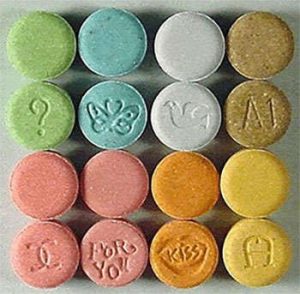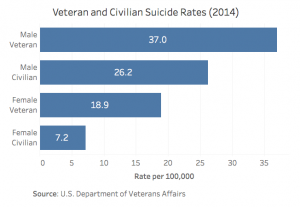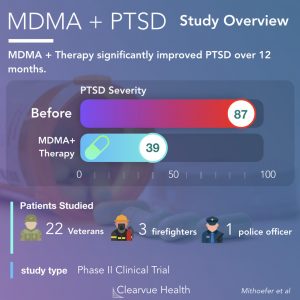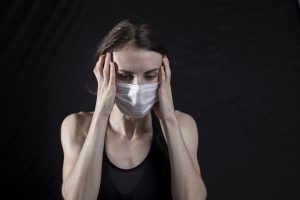When you think of MDMA, otherwise known as ecstasy, you imagine most users using this drug would be most people using it at a club to party. However, scientists have recently used MDMA to assist in treating PTSD, and the results thus far are shocking.
What is MDMA?
MDMA is a drug that alters the mood and perception, where energy, pleasure, emotional warmth and sensory perception of the user are enhanced. To do so, MDMA enhances the release of neurotransmitters like serotonin, dopamine and norepinephrine. The most notable neurotransmitter is serotonin. Serotonin is a neurotransmitter that plays an important role in mood regulation and sleep. When MDMA binds to the synapse of nerve cells, it blocks the reuptake of serotonin, creating excess levels of serotonin present in the synaptic cleft. This is what is believed to cause the mood-elevating effects that people experience.

MDMA is found normally in the form of pressed pills. Source: Wikimedia Commons
PTSD and its effects on the human body
PTSD is usually associated with dramatic flashbacks following a month after a traumatic event. Additionally, it can also be emotional numbness and avoidance of things that are reminders of the trauma. Most people also suffer from increased arousal, where they are very easily irritated and angered. However, these symptoms could take up to many months or years to appear following the trauma. These symptoms, if left untreated, could lead to an increase in suicidal thoughts and behaviours.”. War veterans, who usually suffer some degree of PTSD, are known to have a higher suicide rate compared to regular Canadian citizens. As well, more than 46% of adolescent girls who had been sexually abused attempted suicide at one point in their lives.

Veteran Suicide Rates compared to Civilian Suicide Rates
Source: reddit.com/r/dataisbeautiful by /u/datashown
Decrease in PTSD symptoms after MDMA treatment
In a study done with MDMA and its effect on PTSD, it saw over 68% of its participants no longer meet the standards of PTSD diagnosis over the course of a year. As well, almost all patients saw their symptoms reduced. The treatment of MDMA was done by administering 75-125 mg of the drug during psychotherapy sessions in two/three 8 hour long sessions monthly, with regular psychotherapy sessions that occur between the monthly sessions.
People with PTSD often have a hyperactive amygdala, their part of the brain that regulates fear and anger. When aroused, it causes them to feel stressed and undergo “fight or flight” responses. This is why traditional psychotherapy is difficult because discussion surrounding sensitive topics could trigger it. Additionally, since MDMA regulates the amygdala, this allows for the open discussion of sensitive topics, without triggering the patients “flight or fight” response.

MDMA may improve PTSD symptoms with psychotherapy.
Source: Clearvue Health
The following Ted Talk by Brad Burge furthers the details of why MDMA can be used to treat PTSD

So why is this important?
PTSD affects 7-8 out of 100 people throughout their lives, so it is important there is a clear treatment path. As well, it opens up the possibility for MDMA to be researched into other forms of mental health issues, such as depression and anxiety.
– Martin Au-yeung



